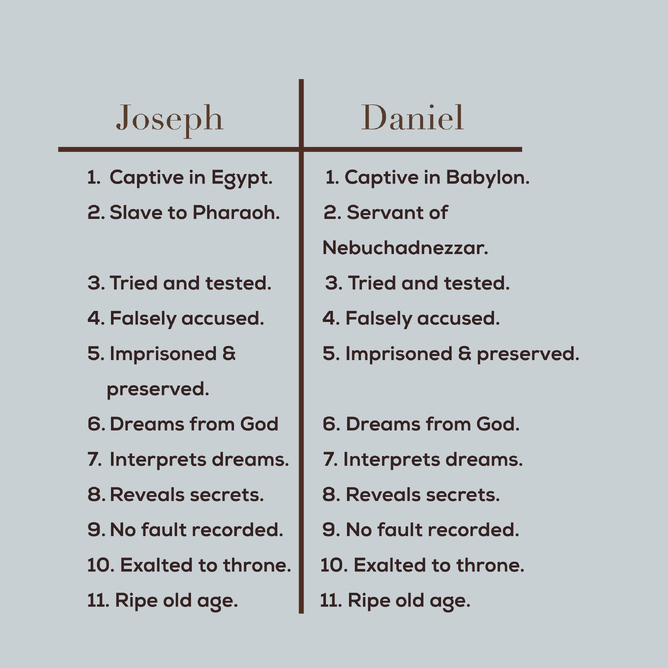The Book of Daniel has 12 chapters and neatly divides into 2 sections with 6 chapters in each section. Chapters 1-6 are mostly historical. Chapters 7-12 are mostly composed of prophetic material.
In the first 6 chapters we follow the life and times of Daniel and his three friends as they work out their faith while in the civil service in Babylon.
- We learn of their capture and deportation to Babylon in the first few verses of chapter one.
- We follow them as they are trained in Babylonian culture and educated in the Babylonian system.
- We watch as they are raised in influence and are appointed to serve at the very highest level of the civil service.
- Ultimately we see them shaping their culture and impacting history, all the while maintaining their faith in God.
The story begins with Daniel in his early teens – probably 16-18 years of age and we follow him until he is in his 80’s. Through these decades he lives through three empires and outlasts four kings. This is far more than a story in a ‘time long ago and a galaxy far away.’ The parallels between Daniel’s time and our own are truly striking and there is much we can learn from him and his friends as they live out their faith in an uncertain, and mostly hostile environment. Daniel was such a remarkable individual that he became a legend in his own lifetime. Most prophets and statesmen aren’t usually appreciated in their own time. It falls to subsequent generations to esteem and honour their memories. Daniel, by contrast, was so outstanding that his contemporaries acknowledged him during his lifetime.
Ezekiel was a contemporary of Daniel. He lived among, and prophesied to, the same people as Daniel. Check out Ezekiel 14:12-14
He was a peerless character who shows unwavering godliness over many decades, not tucked away in some monastery, but in the thick of the push and shove of civil service and popular culture of his time.
Every way you look at him he is remarkable –
- Outstanding character.
- Tremendous giftings.
- Obvious intellectual capacity.
- Outstanding executive ability.
- 1:4 indicates he was picked for the civil service because he met the criteria laid down, “Healthy, handsome, skilful in wisdom with knowledge and understanding…”
This reminds me of another outstanding man of the Old Testament – Joseph, of whom it was also said that he was, “Well built and handsome,” to go along with his very obvious gifts and administrative skill.
Actually, as an aside that you might like to consider, there are remarkable parallels between Joseph and Daniel’s lives.
- Don Barry


